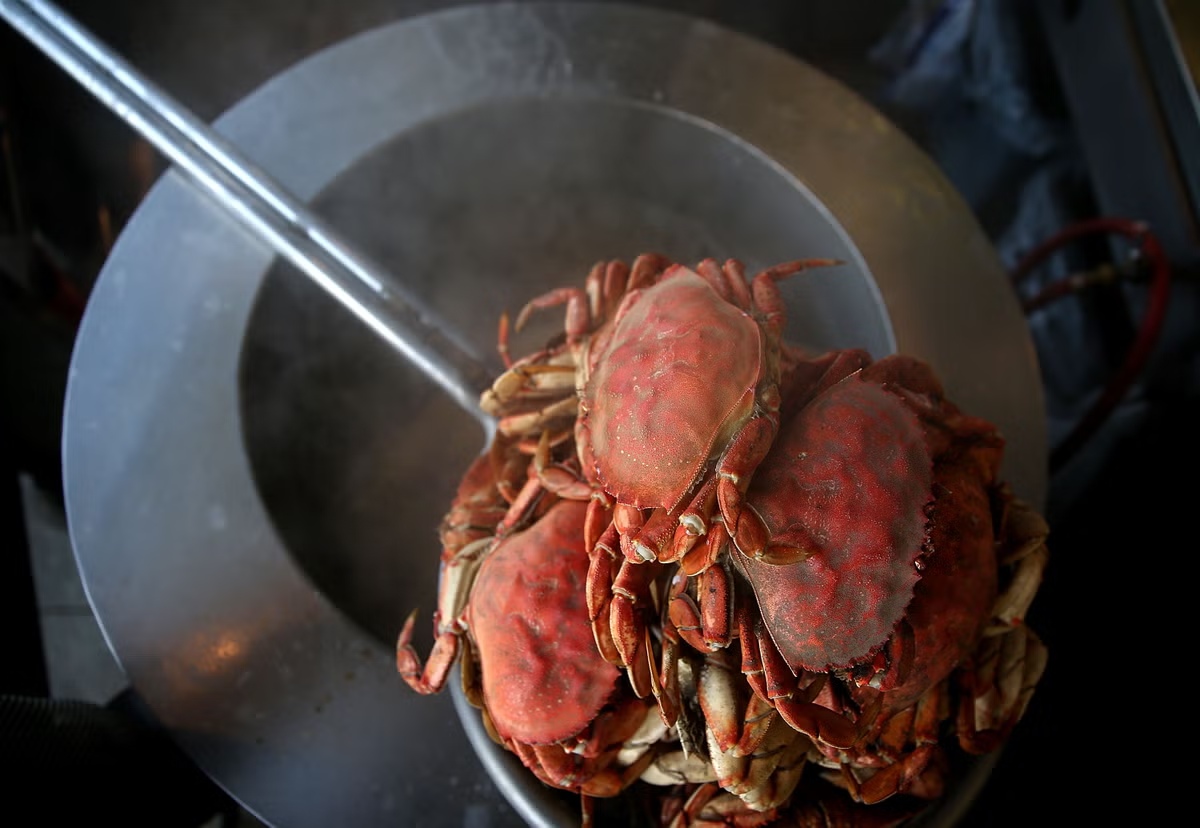A groundbreaking new study has turned the tables on our understanding of crustaceans, suggesting that crabs and lobsters may experience pain in a similar way to humans and other animals.
For a long time, it was believed that these crustaceans’ nervous systems were too simple to process pain, and that their reactions to being boiled were just reflex responses. But now, scientists are calling for a ban on boiling them alive until further research can be conducted.
The Painful Truth About Crabs
The study, published in Biology in October 2024, measured brain activity in crabs exposed to potentially painful stimuli. By attaching electrodes to their nervous systems, researchers observed increased activity in response to chemical irritants and physical pressure. These findings indicate that crabs have pain signaling systems that process harmful stimuli, similar to other animals known to feel pain.

A Wake-Up Call for Animal Welfare Laws
Unfortunately, animal welfare laws in many places do not cover crustaceans, leaving them without protection from inhumane treatment. Currently, boiling crabs and lobsters alive is the most common way to prepare them. However, with this new research suggesting they can experience pain, there are calls to reconsider these methods. Some are advocating for more humane ways to handle and cook them, such as electrical stunning before boiling. Scientists hope these findings will lead to discussions about updating laws to include crustaceans, aiming to minimize their suffering.
Rethinking Our Relationship with Seafood
For many of us, it’s a shocking revelation: we’ve always been told that decapods can’t feel pain, and that it was perfectly ethical to boil them. But if that fact is turned on its head, consumers might start to think twice about their seafood choices. The implications for the industry could be significant, with crabs and lobsters potentially being covered by animal cruelty laws. In many parts of the world, these are considered luxury food items, and this could result in prices going even higher. However, it’s clear that we won’t see any changes until we have a definitive answer on the issue.
A New Era for Crustacean Welfare?
While the results of this study are compelling, it’s essential to duplicate them to confirm the findings. Until then, it’s unclear what changes will be made. But one thing is certain: this research has sparked a crucial conversation about our treatment of crustaceans. As we continue to learn more about these fascinating creatures, we may be forced to rethink our relationship with them – and the way we treat them.

